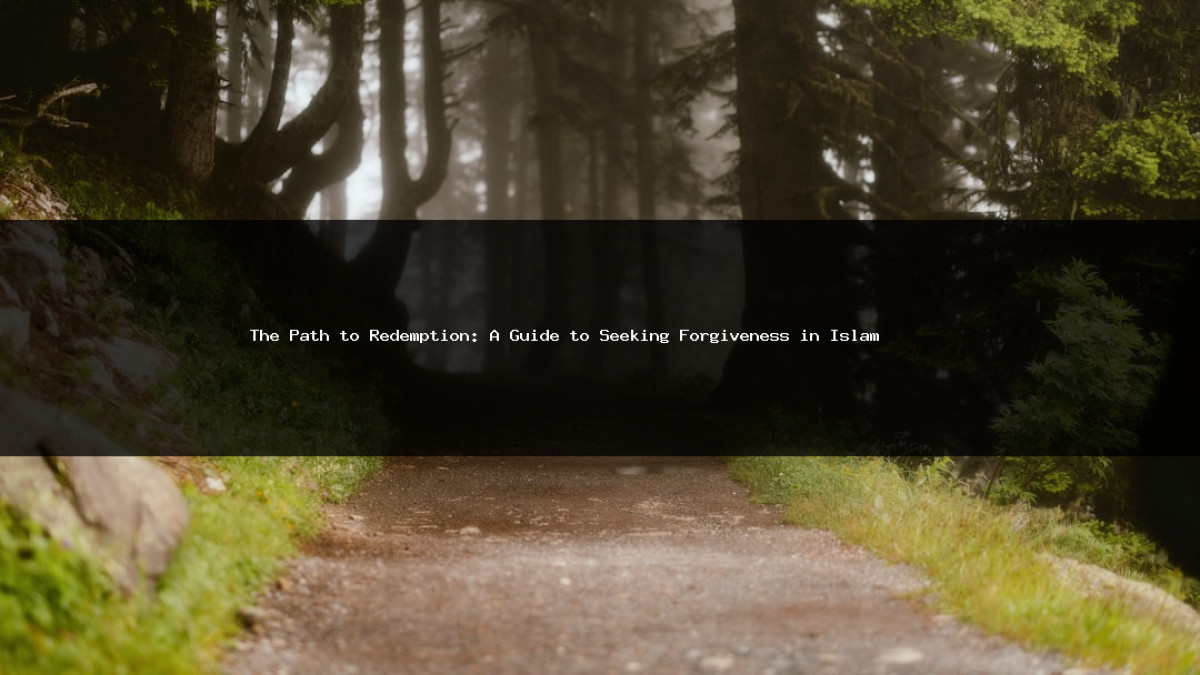Introduction
Forgiveness is a central concept in Islam, not only in its theological frameworks but also in its everyday practices and interpersonal relationships. The pursuit of forgiveness—whether from Allah (SWT) or from fellow human beings—is integral to fostering a harmonious community and cultivating inner peace. This comprehensive guide explores the principles of seeking forgiveness in Islam, supported by real-world examples, authentic reviews from practicing Muslims, and practical tips for personal implementation.
Understanding Forgiveness in Islam
Forgiveness, or "Maghfirah," holds a paramount place in Islamic teachings. The Quran reiterates the importance of forgiveness, emphasizing Allah’s merciful nature. In Surah Al-Baqarah (2: 218), it says, “Indeed, Allah is Forgiving and Merciful.” This indicates that seeking God’s forgiveness is a path toward healing and spiritual rejuvenation.
Islamic teachings highlight that humans are fallible and prone to sin. The acknowledgement of one’s sins and the desire to repent are essential steps toward attaining divine mercy. Hadith, sayings of the Prophet Muhammad (peace be upon him), further elucidate this principle. One such Hadith states: "Every son of Adam sins, and the best of those who sin are those who repent" (Ibn Majah).
The Process of Seeking Forgiveness
Seeking forgiveness in Islam involves several steps that resonate with spiritual sincerity:
-
Recognition of the Sin: The first step towards forgiveness is acknowledging one’s sin. This acknowledgment serves as a foundation for true remorse.
-
Sincere Repentance (Tawbah): According to Islamic teachings, sincere intention to turn away from sin is crucial. Tawbah involves a heartfelt commitment to not return to the sin in the future.
-
Dua (Supplication): Engaging in personal prayers and supplications to ask Allah for forgiveness. This is often a private dialogue between the individual and Allah, emphasizing sincerity and humility.
-
Good Deeds: Islam encourages supplementing acts of repentance with good deeds. This might involve charity, helping others, or actively working to rectify past wrongs.
- Seeking Forgiveness from Others: If the sin directly impacted another person, seeking their forgiveness is necessary. This step embodies the spirit of community and accountability within Islam.
Real-World Examples of Seeking Forgiveness
Example 1: A Personal Journey
Sara, a practicing Muslim, recalls a period in her life where she became distant from her faith. Caught up in the busyness of daily life, she neglected her prayers and ethical responsibilities. Realizing her drift, she began a journey toward self-discovery and repentance. Through consistent Salah (prayer), supplications, and acts of kindness, Sara sought forgiveness from Allah. Her transition wasn’t instantaneous but involved a continual effort. Today, she describes her relationship with Allah as more profound and fulfilling. Sara’s story illustrates that while seeking forgiveness can be challenging, the journey reaps spiritual rewards.
Example 2: Community Impact
In a broader context, community initiatives such as reconciliation circles demonstrate the principles of forgiveness. These programs are designed to address grievances, heal relationships, and restore trust among community members. When conflicts arise, these circles encourage open dialogue and expressions of regret, fostering an environment where forgiveness is both sought and granted.
Authentic Reviews from Practicing Muslims
Many practicing Muslims cherish the teachings surrounding forgiveness. Here are some reflections:
-
Ahmed, 32: "For me, seeking forgiveness is a cleansing process. The moment I sincerely repented, I felt this weight lift off my shoulders. It’s empowering to know Allah is always ready to forgive me if I turn to Him sincerely."
- Fatima, 28: "I once hurt a close friend without meaning to. Apologizing to her—asking for her forgiveness—was daunting, but it taught me the value of accountability. It rekindled our friendship and strengthened our bond."
Practical Tips for Seeking Forgiveness
Seeking forgiveness is not merely an act but a continual process. Here are some practical steps for implementation:
-
Daily Reflection: Spend a few minutes daily contemplating your actions. This can help identify areas needing repentance.
-
Setting Intentions: Write down your sincere intentions to seek forgiveness. This practice can be a motivating reminder of your spiritual goals.
-
Engaging in Community Service: Regularly participate in community service or volunteering. Such actions reinforce the habit of goodwill toward others and foster a sense of belonging.
-
Open Communication: Be open in your conversations with family and friends about forgiveness. Discussing experiences and insights can provide valuable lessons.
- Utilizing Islamic Resources: Attend lectures or read books on the topics of forgiveness in Islam. Engaging with knowledgeable scholars can offer deeper insights.
FAQs About Seeking Forgiveness in Islam
Q1: Is there a specific prayer for forgiveness?
Yes, while there are various supplications (Duas) one can recite, a commonly recited one is “Astaghfirullah” (I seek forgiveness from Allah).
Q2: How long does it take to be forgiven?
Forgiveness is ultimately at the discretion of Allah. Sincere repentance, however, can grant immediate forgiveness.
Q3: What if I repeatedly commit the same sin?
Islam teaches that one should continually strive for improvement. Sunset on one sin creates a new dawn for repentance. Keep seeking forgiveness with sincerity.
Q4: Is forgiveness from others necessary to be forgiven by Allah?
Yes, if a sin directly involves harming another person, it is essential to seek their forgiveness to fully attain Allah’s mercy.
Conclusion
The pursuit of forgiveness in Islam is a profound and transformative journey. It emphasizes self-reflection, sincere repentance, and a commitment to fostering healthy relationships with others. Through the teachings of the Quran and Hadith, Muslims are encouraged to understand that while they may err, the path to redemption is always accessible.
Community stories and individual testimonies illustrate the potential for healing through forgiveness, both personally and collectively. As you seek forgiveness, remember that it is a continuous process—one that nurtures your spiritual life and cultivates positive societal impacts. Committing to this path embeds you deeper into the values of mercy and compassion that lie at the core of Islamic teaching, ultimately leading to a higher quality of life both spiritually and communally.

